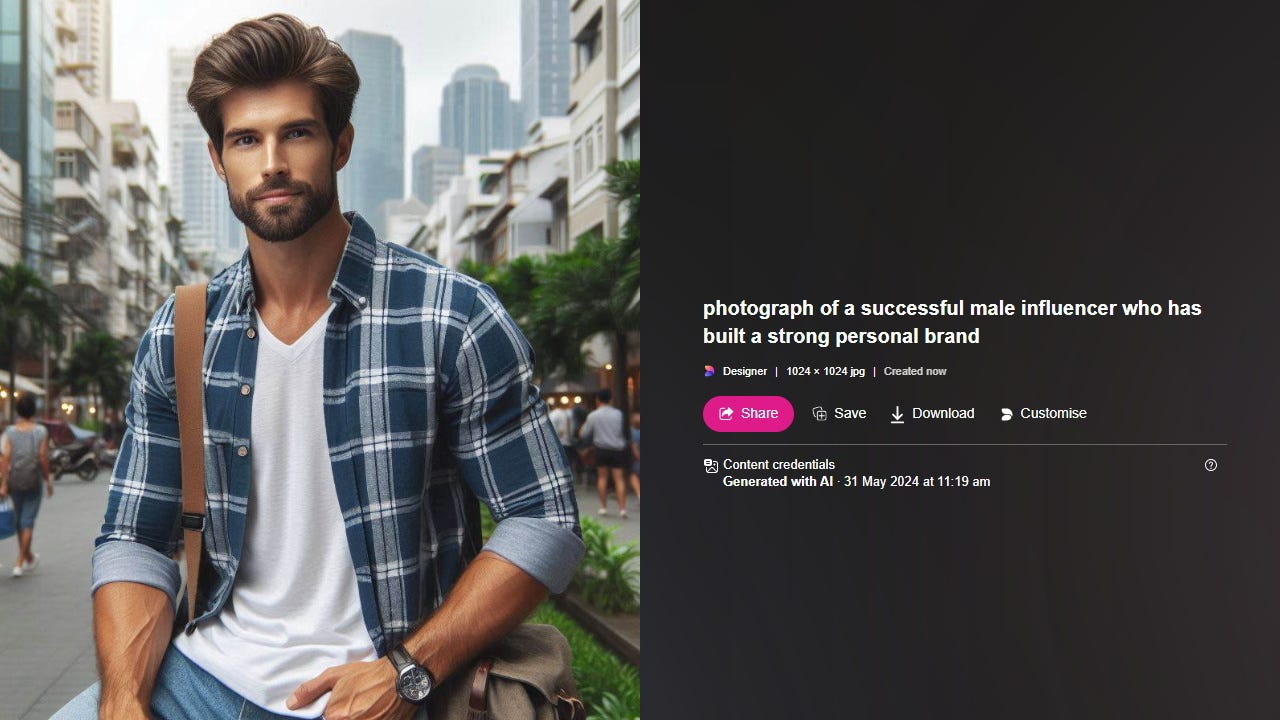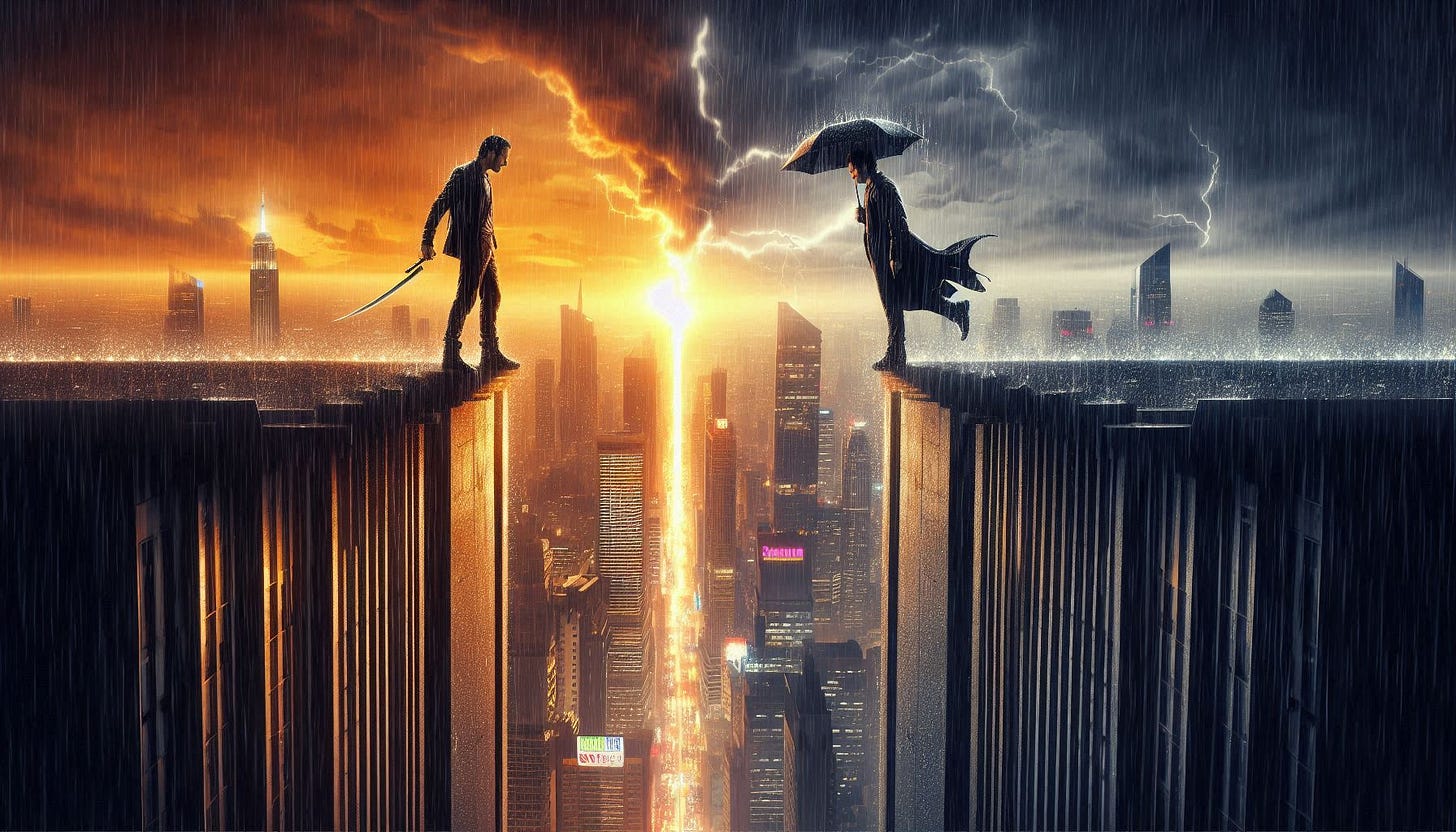Petty Nemesis — Civil War: Reloaded
I'd say your so-called 'Lord' Botham's a big stupid poopyhead, mate
At the risk of sounding like an ageing celebrity attempting to gloss over the many indiscretions in his personal life, I’m all in favour of healing and growing, letting things go, and trying to do better.
(As will be discussed below, nothing about my life resembles that of a celebrity, and certainly not one with a colourful past).
In particular, a tendency towards mean-spirited sass or snark has come to hold less appeal in recent years.
However, I recently discovered that this mindset is said to produce a different kind of writing known as ‘smarm’, which more than ten years ago was identified by an influential online essay as an emerging and problematic trend that contributes to, among other things, the election of extremely dangerous politicians.
As with lots of internet opinions, I understood on a rational level that this piece had absolutely nothing to with me, while also somehow feeling the need to take it personally.
Anyway, here’s a piece about avenging petty grudges, albeit in an entirely fictional setting, inspired by me taking the question of which actor would play me in a movie far too literally and a documentary about two very old cricketers being a bit silly.
—
‘Who would play you in the film of your life?’ is something I was asked recently by a friend, who had preceded the question by suggesting that people who said that they hadn’t really thought about it (my planned answer) were a bit boring.
The truth is, though, that I am a bit boring, and there would be no film of my life, because that would also be boring. Even biographical films about people who have lived interesting lives, featuring the cream of Hollywood talent, can be a bit boring, too, despite the best efforts of those involved.
I guess the question is really more about which famous actors or people you think you look like, if you were put into a machine and a few attractiveness knobs were twizzled in a favourable direction. Still, no-one really came to mind.
I don’t look like any celebrities, unless those celebrities are the former Leicester City winger Marc Albrighton and a young Thom Yorke from Radiohead (take the pointy facial features of Albrighton and replace his symmetrical Premier League smile with Yorke’s more wonky gnashers and slightly weird, lop-sided demeanour, and you’re sort of there).
Obviously, I also look nothing like my AI representation for this Substack, the successful male influencer building a successful brand. I’m not sure of the benefit of seeing a writer’s picture, or that I’ve ever really seen a flattering one: they usually either look a bit smug, or really uncomfortable, while adopting the look of someone being told by the person holding the camera to try and look less uncomfortable.
(I’m not judging anyone for this, by the way: my work picture, which I was unable to refuse, and was forced to take myself, somehow combines the two: totally ill-at-ease, while also simultaneously looking more pleased with myself than anyone else in the history of the world).
Anyway, if my life really was going to be turned into a film, then for anyone to watch it, the major details would need to be completely reconfigured into an overblown action or sci-fi caper that might make some money at the box office.
And this, I’m afraid to say, is something that I can more easily get on board with. Everyone’s the hero of their own story, after all, and if all we need to do to secure some funding is replace almost every specific detail about the source material with something infinitely more exciting, then that works for me.
I will, however, insist that I retain creative control over the final scenes, specifically the person that my character engages in a climactic rooftop battle to the death. I’m not fussy: I don’t have one specific real-life nemesis in mind, but it will have to be one of a select handful of people against whom I’ve retained a petty but very real grudge over the years.
I was thinking about this recently when I watched the documentary The Longest Feud: Chappell v Botham on Amazon Prime. Being a keen cricket fan, I knew the two (former Australian captain Ian Chappell and legendary all-rounder/pantomime star/House of Lords member Sir Ian Botham) didn’t really get on, but figured that there must be more to the story if someone had managed to eke out a whole film about it.
It turns out, there isn’t, and rather than being a feature-length affair, the whole thing is done and dusted in about 45 minutes. In short: they had a bit of a fist-fight in 1976 and have kept their distance since then, which isn’t surprising, since their playing careers didn’t really overlap. Chappell retired in 1980, when Botham was 25, and hence their on-field encounters were extremely limited.
Essentially, the documentary consists of two men old enough to know better giving very subjective, police-witness-statement-style accounts of an encounter in a pub more than 45 years ago, some brief and inconsequential footage of the two playing against each other on England’s 1979/80 tour to Australia, the time in the late 90s when Channel 9 decided to make them co-commentators for a Test match, on the basis that the tension might boil over into something interesting (it didn’t)1 and then another abbreviated dust-up in a car park in 2010.
The coup de grâce is supposedly that, after we hear all of the (not very) juicy details of this long-running feud, the two men will finally come face to face again, on camera, all these years later. The scene that unfolds is hardly explosive or climactic: it’s a brief and vaguely comical exchange, with the whole thing having the air of an episode of Kath and Kim. Unsurprisingly, no fences are mended.
While it might all seem a little bit pathetic, you have to admire their commitment to their petty feud all these years later. And it is a petty feud: the paucity of available material for the documentary suggests that each’s insistence that they barely spend any time at all thinking about the other is probably correct. It’s just if they’re forced to do so, or urged by mutual friends to patch things up and go for a beer, then hackles are raised and the old feelings resurface.
Not being a professional sportsman, the origins of my petty personal or professional rivalries were in shared living or office spaces, and for a whole variety of reasons — mainly the restrictions in place for most of us, i.e. pragmatism and accepted social convention — it never escalated into anything other than the gently simmering annoyance of being forced to experience, on a regular basis, the foibles of someone who really wasn’t my cup of tea.
On the other hand, after gritting my teeth for whatever period I shared time and space with a petty nemesis, our paths never crossed again on the basis that neither of us were public figures with media profiles, nor was there any accompanying narrative about past tensions, or pressure for the situation to be confronted or a hatchet to be buried.
It would have been easy for the Botham/Chappell documentary to end with some kind of contrived conviviality, like the handshake at the end of a big match with someone who’s been calling you all the names under the sun throughout: ‘well played, mate, no hard feelings, it’s all part of the game,’ etc. Instead, they stick to their guns: look, I just don’t like this bloke, and he doesn’t like me either.
If I was to find myself in a room with a petty nemesis again, those same forces of pragmatism and social convention would, of course, dictate that I ask them what they were up to these days and try to find some uncontroversial shared story that we could discuss briefly before ending the conversation as quickly as politely possible.
The equivalent of a handshake, in other words: but we never had that bar brawl, or media war, in the first place, so it would just be an unexpected epilogue to a very boring tale.
However, if our next meeting was in a more exciting, and completely fictional, setting, and my hero character was about to duel with them at the end of a movie, then real-world rules would no longer apply.
Instead, we could have one of those big fights — on a rooftop in the rain, or with laser swords near a big volcano — where it's somehow possible to have a bit of a chat in between: ‘So, it’s come down to this…’ <BIFF> ‘We could have been friends, you and I…’ <THWACK> ‘But now, it’s time to settle things, once and for all…’ <KA-POW!>2
This scenario doesn’t, by the way, apply to any genuinely nefarious or damaging characters from the past. Dreaming of fighting someone who once caused, or meant, genuine harm is all a bit too serious for this kind of caper, and probably the kind of thing to discuss with a trained professional.
Or perhaps that’s actually a bit more understandable than the situation I’m describing here, which appears to be (having read it all back) that there are a few people in my past who I thought were low-level knobheads and I would quite like them to be beaten up by a fictional and more attractive version of myself in the satisfying and climactic finale of a film that will never be made.
Most of these rivalries may well have been entirely one-sided, too, and this fact makes it more likely that I will, unknowingly, also be the petty bad guy from someone else’s life story.
Is there someone else out there who thinks about holding me over the edge of the roof of a skyscraper because they spent years mentally biting their own fists in annoyance at things I was saying and doing, day after day, week after week, year after year? It seems not only possible but likely.
Anyway… who would play me in the film of my life? Dunno, really. My wife used to fancy Sean Bean, so let’s say him.
For some reason, it made me think of the time when the Celebrity Big Brother producers, pre-2007 racism scandal, sent Sylvester Stallone’s ageing mother into the house as a surprise on the basis that it would be ‘hilarious’ and/or might upset fellow contestant Brigitte Nielsen, Stallone’s ex-wife. Was it worth it? Just to get, ‘Oh my god, Jackie!’ ‘Yeah, Jackie!’ Oh yeah, I guess maybe it was.
We’d have to use generic stuff like this, because otherwise the script would just be the hero character listing very minor and years-old grievances about too-long lunch breaks or that time he overheard the other person slagging him off to mutual housemates, with the nemesis character simply remaining silent in response. Look, the script would take some work, that’s all I’m saying.





